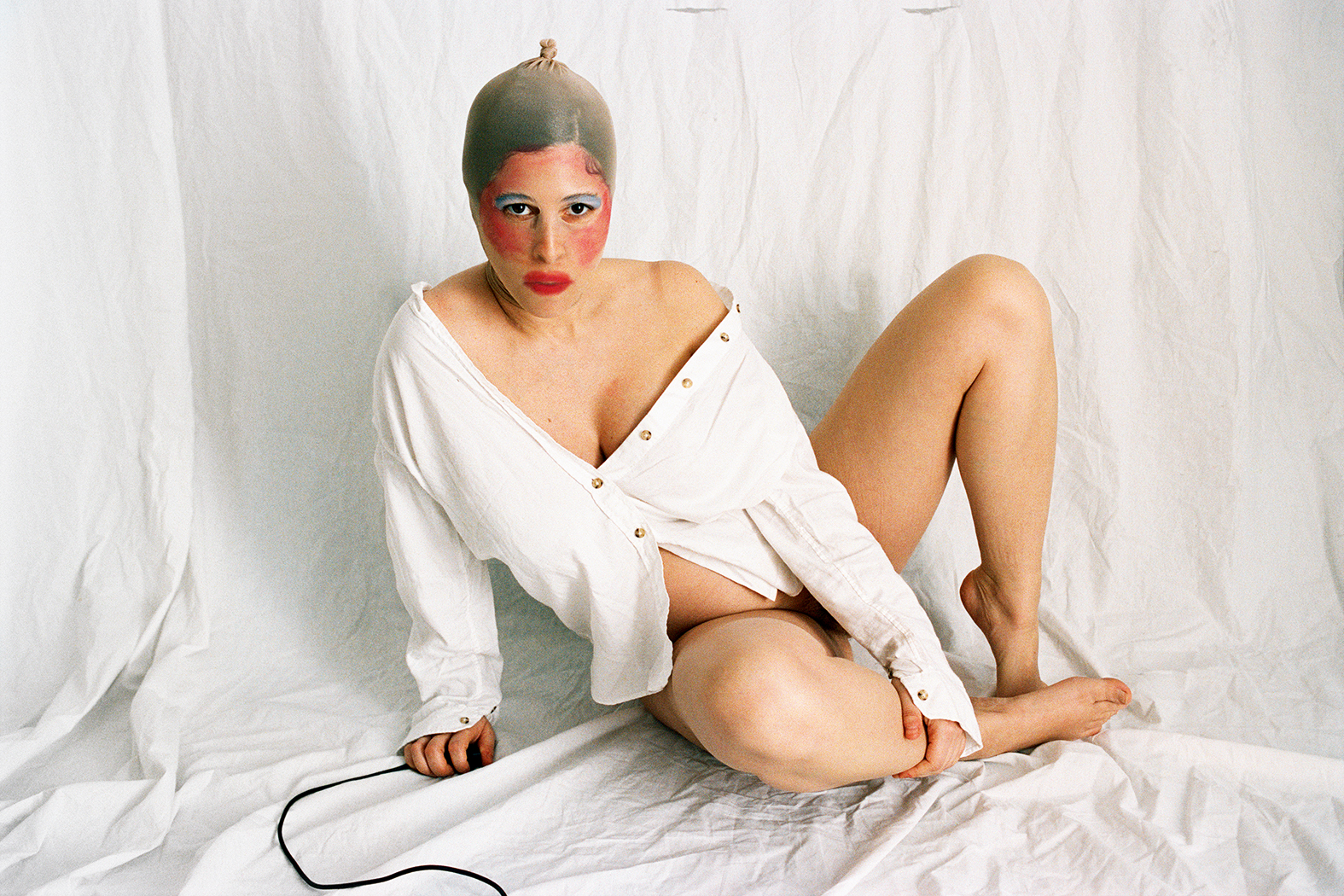The oft-times playful — and periodically controversial — photographer Talia Chetrit’s latest photo book, JOKE, releases this month with London’s Mack Books. A few years on from the start of Covid and the world’s collective reflection on our mortality, the book deals in similar themes, ones that she’s continuously revisited throughout her career via a collection of self-portraits, family photos, street photography, still lifes and archival images taken as a teenager with her friends. The title, which she used previously for another collection of work, is one that Talia returns to as it reflects the dichotomy of her focus: walking the line between positive and negative, between playfulness and darker connotations of the word “joke”.
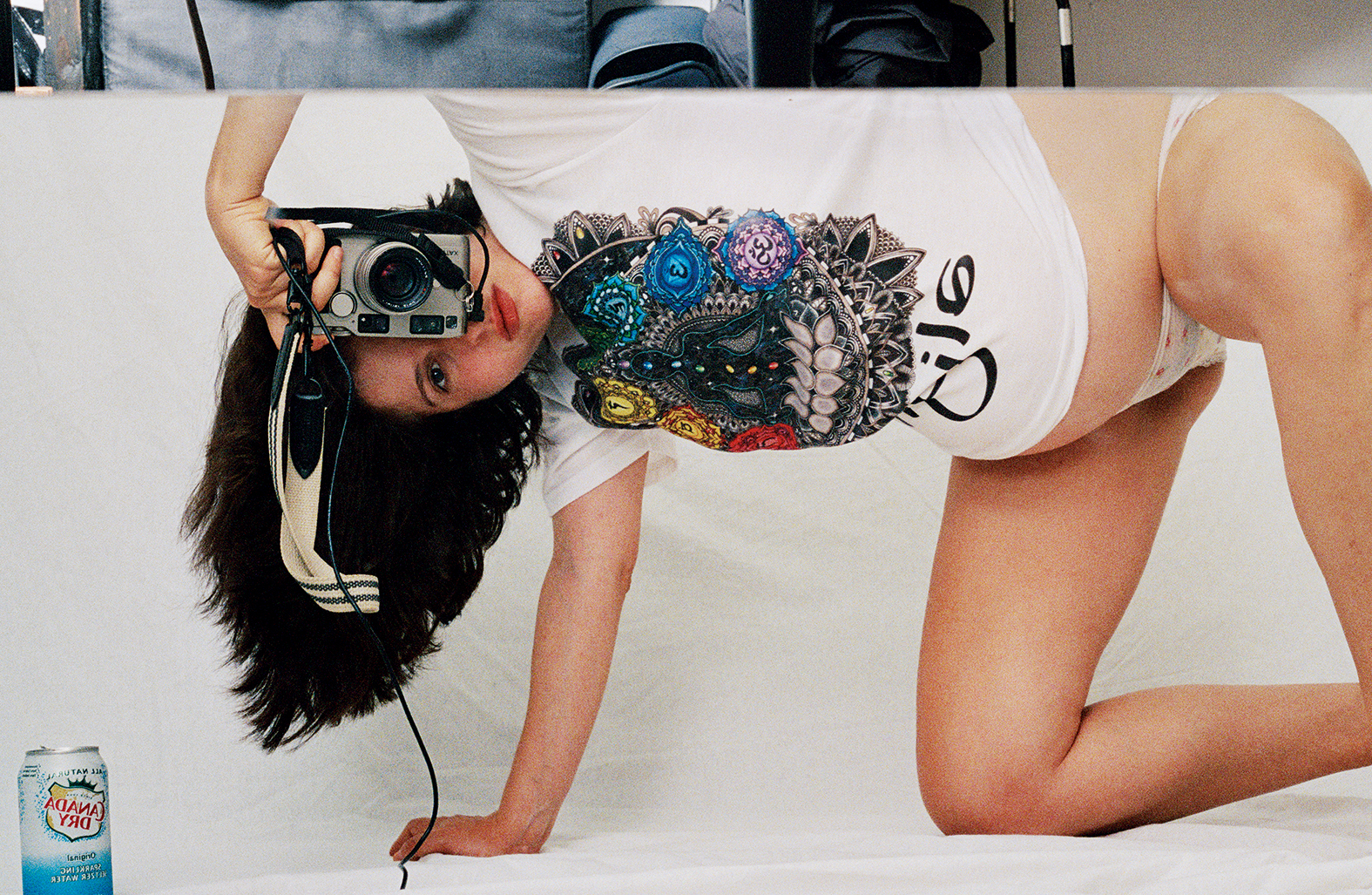
Growing up in Washington DC, Talia began shooting at a mere 13 years old, after creating a dark room in the laundry cupboard of her parent’s house. Many of the images taken during this time — like those of friends in various unrealistic bloody slumps, apparent casualties of a murderous firearm — are included in the book. She began resurfacing her early photographs about a decade ago: “It’s been interesting for me to look back at what I was making and try to understand what I was looking for at the time with so little influence,” she explains. “By reusing the images I was making at 13, 14, 15 years old, I can think about that important time of adolescence without my adult self interfering too much, only recontextualising. As a teenager, the camera provided a way for me to connect with my environment, but it also put up a barrier and became a coping tool to help me get through that notoriously complicated time.”
Talia’s work varies between actively directing and merely documenting her subjects. For instance shots of her partner, Denis, and her young child, Roman, are an evident combination: “Roman is so young in some of those photos,” she says. “You can clearly understand he’s an uncontrollable subject because of his age, which breaks a performative wall. And then the performance from Denis is so composed, which confuses the image. Even as we know the moment is performative, we also understand there’s a reality embedded into the performance. That’s generally a relationship I like to play with.” With her parents, who are often found in her imagery, Talia’s very direct — but with the children, she says there’s no need to be.
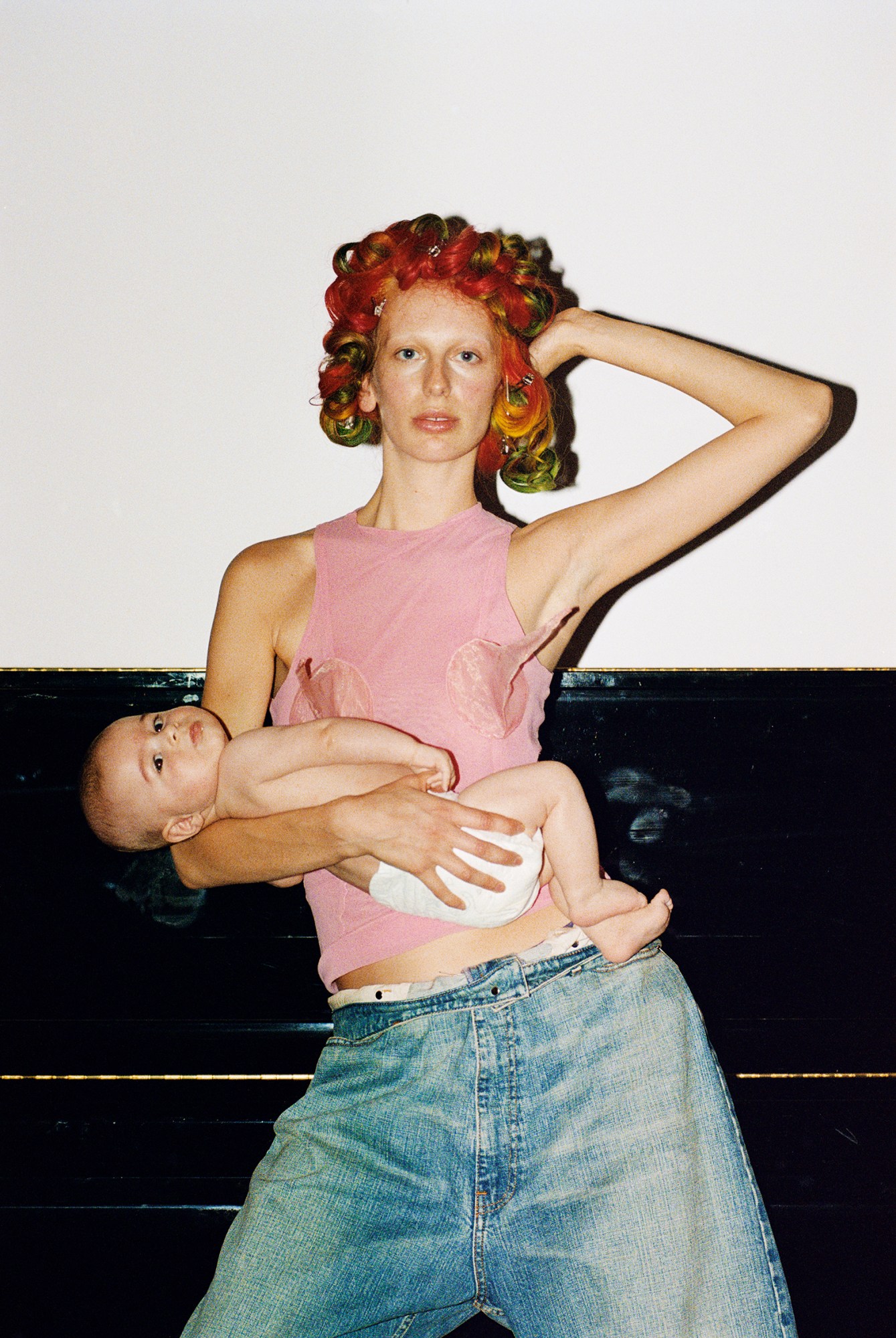
Welcomed and celebrated by the art and fashion worlds alike, reactions to her work can be mixed on social media: “There’s this one image that has been posted on very mainstream Instagram accounts and it always gets a strong reaction because the image is of a pre-teen girl,” she says. “I’m not directing my subject in this case, she’s doing what she wants and thinking through how she wants to be pictured, acting like herself, a young person. The viewers who are finding that image problematic are the ones adding the perversion. I don’t see that image in the same way, I see her acting like a little girl who’s very much in control and there’s no shame in that.”
As we emerge from one of the most trying times for humankind of the past century, JOKE entices its viewers with playfulness and imbues a sense of nostalgia. It beckons us to reflect on this historic period, spending such concentrated time indoors, alone or with family and friends. How has it changed us individually and as a society overall? In the midst of so much loss, what has been gained? What do we prize and what do we shed? How do we move forward?

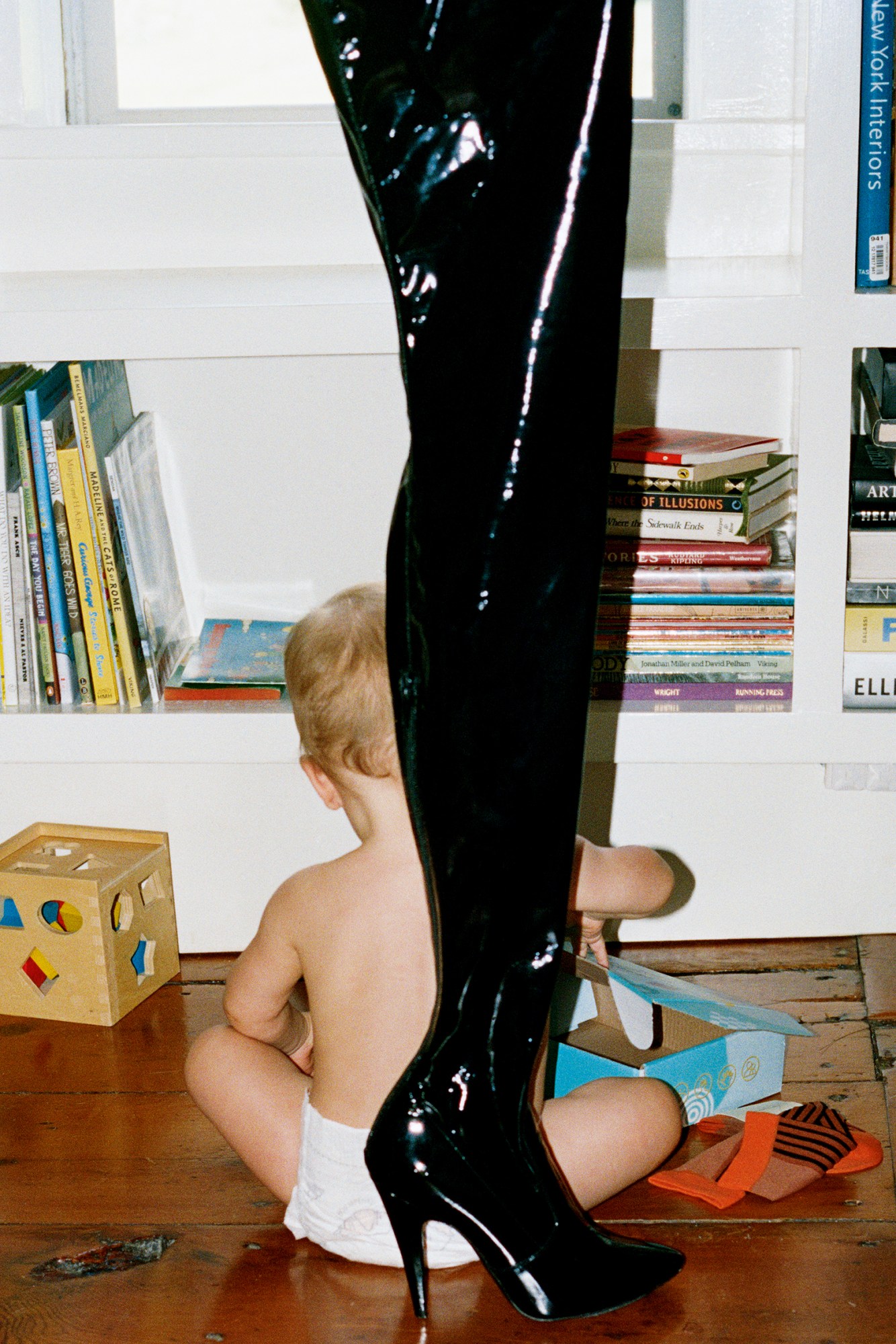
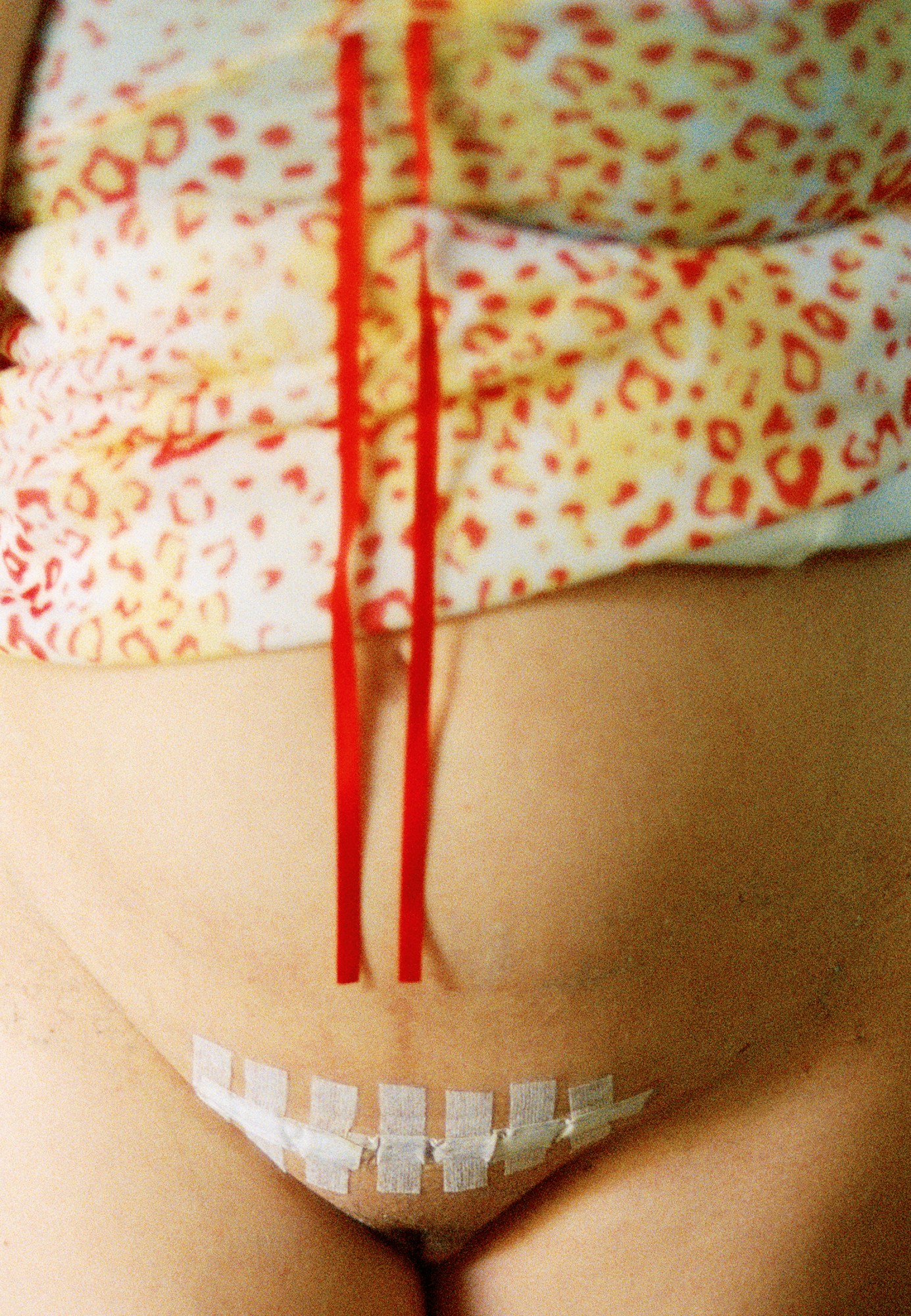
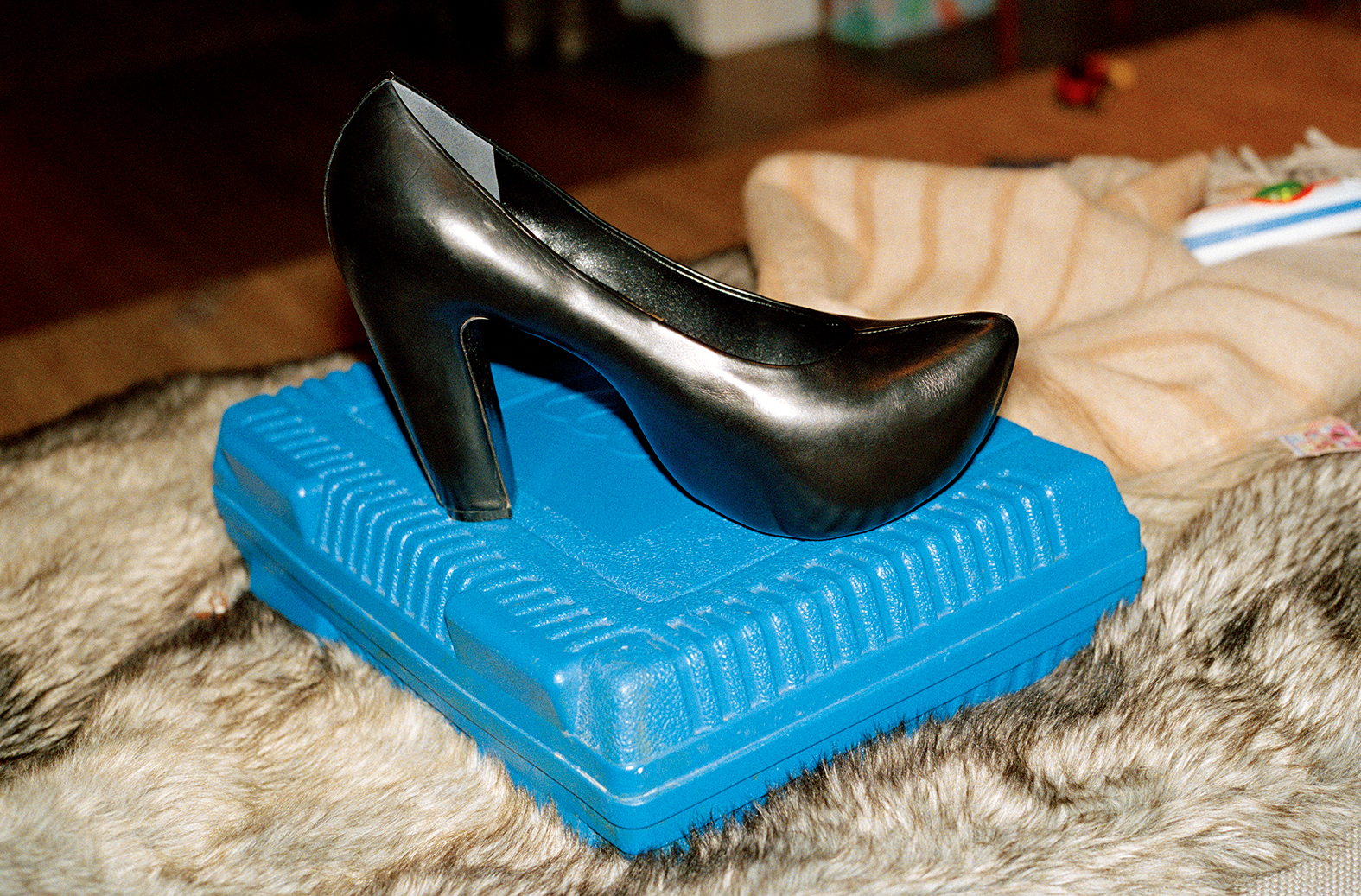
Follow i-D on Instagram and TikTok for more photography.
Credits
All images by Talia Cherit
